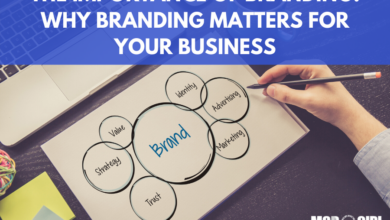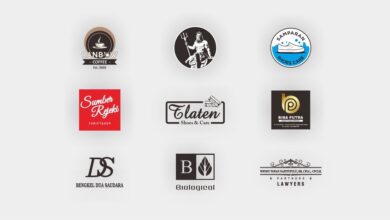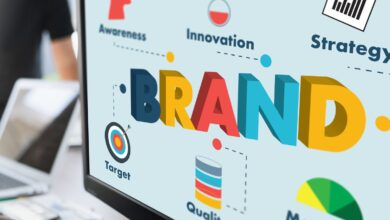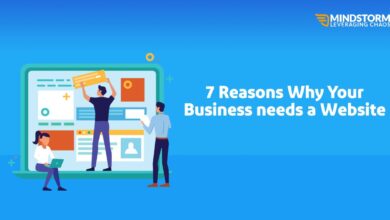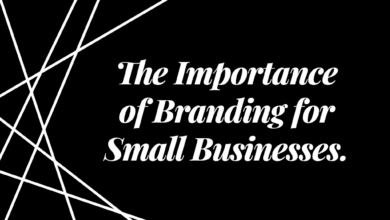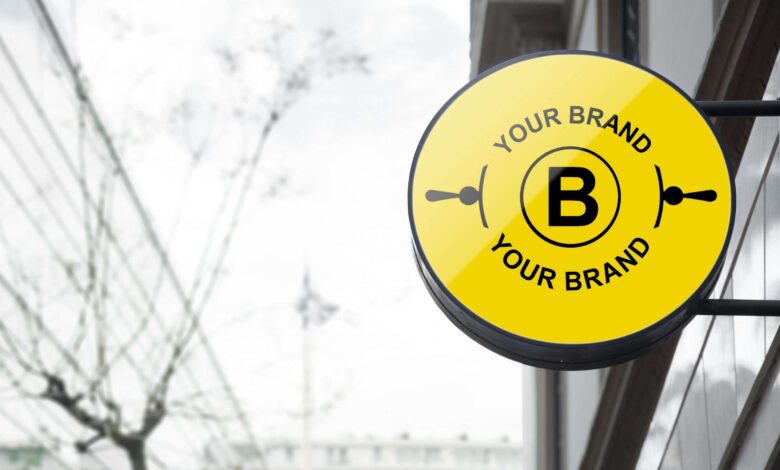
Why You Should Use a Branding Agency
Why you should use a branding agency? Let’s be honest, building a brand is HARD. It’s a blend of art, science, and sheer grit. You’re juggling logo design, marketing strategies, and trying to maintain a consistent voice across all platforms – all while keeping your business afloat. It’s a recipe for burnout, and often, for a brand that’s less than stellar.
This post dives into why outsourcing this crucial element to a professional branding agency is not just a good idea, but a smart investment in your business’s future.
From crafting a killer brand strategy to ensuring consistent messaging and maximizing your reach, a branding agency brings a level of expertise, resources, and objectivity that’s hard to match internally. They handle everything from market research and logo design to public relations and crisis management. Think of them as your brand’s personal superhero team, ready to fight for your brand’s visibility and success.
This isn’t about replacing your internal team; it’s about strategically supplementing their skills with specialist knowledge for optimal results.
Expertise and Specialized Skills
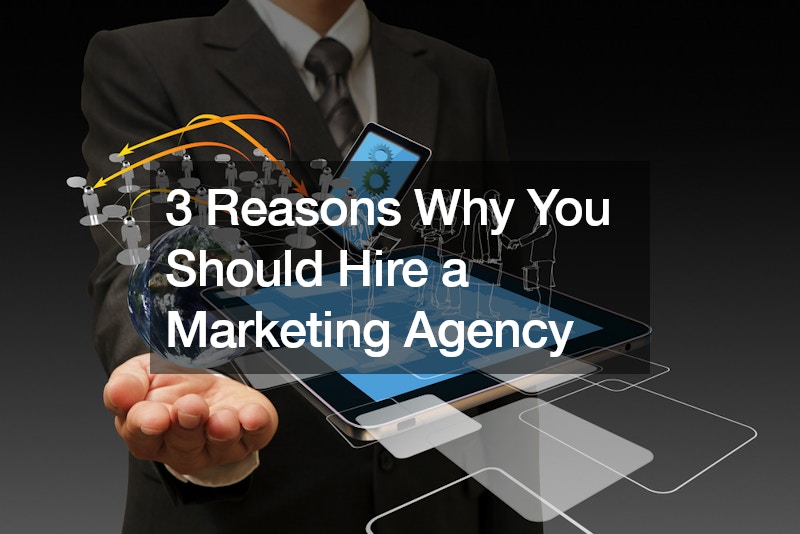
Source: claremontportside.com
Let’s face it: building a strong brand isn’t a one-person job, and it’s rarely something that can be effectively handled by a single individual within a company, especially smaller ones. It requires a diverse skill set and a coordinated approach that extends far beyond the typical capabilities of most in-house teams. This is where the true value of a branding agency becomes clear.
They bring a wealth of specialized expertise to the table, allowing you to focus on what you do best: running your business.Branding agencies possess a breadth and depth of skills that are difficult, if not impossible, to replicate internally. They assemble teams of highly specialized individuals, each contributing their unique talents to create a cohesive and effective brand strategy.
This collaborative approach fosters innovation and ensures that every aspect of your brand, from its visual identity to its messaging, is carefully considered and expertly executed. The efficiency gains alone often justify the investment.
Specialized Services Offered by Branding Agencies
Branding agencies offer a wide array of services designed to build and strengthen your brand. These services go far beyond simply creating a logo. They encompass comprehensive market research to understand your target audience, competitor analysis to identify opportunities for differentiation, and the development of a robust brand strategy that guides all future marketing and communications efforts. Think of it as a holistic approach to brand building, encompassing everything from initial concept to ongoing maintenance and refinement.
For example, they might conduct in-depth customer surveys to identify unmet needs, analyze competitor marketing materials to pinpoint areas for improvement, or develop detailed brand guidelines to ensure consistent messaging across all platforms.
Benefits of Leveraging Specialized Expertise
The benefits of outsourcing your branding to a specialized agency are numerous and impactful. Leveraging expertise in graphic design ensures your brand visuals are both aesthetically pleasing and effectively communicate your brand message. This translates to a more impactful visual presence across all your marketing materials, from your website to your social media posts. Similarly, expert marketing strategies ensure your brand reaches the right audience through the most effective channels.
Public relations expertise helps to build and maintain a positive brand reputation, handling media relations and crisis communication with skill and professionalism.
Efficiency of Outsourcing Branding Tasks
Comparing the efficiency of outsourcing versus managing branding internally highlights a significant advantage for agencies. Internal teams often juggle multiple responsibilities, leading to stretched resources and potentially delayed or sub-optimal results. Outsourcing allows you to free up your internal team to focus on their core competencies, while experts dedicated solely to branding can efficiently and effectively manage the complexities of building a successful brand.
This focused approach leads to faster turnaround times, improved quality, and ultimately, a stronger return on investment. For instance, an in-house team might spend weeks designing a logo, while a specialized agency, with its dedicated design team and streamlined workflow, could deliver a superior result in a fraction of the time.
Strategic Brand Development: Why You Should Use A Branding Agency
Building a successful brand isn’t about slapping a logo on a product; it’s a deeply strategic process that requires careful planning and execution. A branding agency brings the expertise and methodology to navigate this complexity, ensuring your brand resonates with your target audience and achieves its business objectives. They understand that a strong brand is the cornerstone of long-term success, driving customer loyalty, market differentiation, and ultimately, profitability.A branding agency employs a systematic approach to brand strategy development, moving through a series of carefully considered phases.
This isn’t a one-size-fits-all approach; each strategy is tailored to the unique needs and aspirations of the client.
Brand Discovery and Analysis
The initial phase focuses on understanding the client’s business, its current market position, and its future aspirations. This involves thorough market research, competitive analysis, and in-depth interviews with key stakeholders. The agency delves into the client’s history, values, and unique selling propositions to unearth the core essence of the brand. This foundational understanding forms the bedrock upon which the entire brand strategy will be built.
For example, an agency might analyze competitor marketing campaigns to identify opportunities for differentiation, or conduct customer surveys to understand unmet needs within the market.
Brand Positioning and Messaging
Once the brand’s core essence is defined, the agency develops a clear and concise brand positioning statement. This statement articulates the brand’s unique value proposition and how it differentiates itself from competitors. This is followed by the crafting of core brand messaging – the key messages that will be consistently communicated across all platforms. These messages must be authentic, resonant, and memorable, capturing the brand’s personality and values.
For instance, a luxury car brand might position itself as a symbol of prestige and innovation, while a budget airline might focus on affordability and convenience. These different positions will inform drastically different marketing strategies.
Brand Identity Development
This phase involves creating the visual and verbal elements that embody the brand’s personality and values. This includes developing a logo, color palette, typography, and overall visual style guide. The agency also crafts the brand’s voice and tone, dictating how the brand communicates with its audience. The goal is to create a cohesive and memorable brand identity that is consistent across all touchpoints.
Imagine a new coffee shop wanting a friendly and approachable brand identity; the agency might choose warm colors, a handwritten-style font, and friendly imagery in its branding materials.
Brand Strategy Implementation and Monitoring
The final phase involves implementing the brand strategy across all channels and platforms. This includes website design, social media marketing, advertising campaigns, and public relations efforts. The agency ensures consistent brand messaging and visual identity across all platforms, maintaining a unified brand experience for the customer. Crucially, the agency also establishes ongoing monitoring and evaluation processes to track the effectiveness of the brand strategy and make adjustments as needed.
This iterative approach allows for continuous improvement and optimization.
Hypothetical Brand Strategy: “EcoBloom,” Sustainable Gardening Products
EcoBloom is a fictional company selling sustainable gardening products. Its brand strategy would focus on:* Brand Positioning: EcoBloom positions itself as the trusted source for eco-friendly gardening solutions, empowering customers to create beautiful and sustainable gardens.
Target Audience
Environmentally conscious consumers aged 25-55, interested in gardening and sustainable living.
Brand Messaging
“Grow beautifully, sustainably.” This tagline encapsulates both the aesthetic and environmental aspects of the brand.
Brand Identity
A logo featuring a stylized leaf with integrated solar panels; a color palette of greens, browns, and earthy tones; a friendly and informative brand voice.
Marketing Channels
Social media marketing focusing on gardening tips and sustainable practices; collaborations with environmental organizations; partnerships with local nurseries and garden centers.
Consistent Brand Messaging Across Platforms
Maintaining consistent brand messaging is critical for building brand recognition and trust. Inconsistent messaging can confuse consumers and dilute the brand’s identity. A branding agency ensures consistency by developing a comprehensive brand style guide that Artikels the brand’s voice, tone, messaging, and visual identity. This guide serves as a central resource for all marketing and communication efforts, ensuring everyone is on the same page.
For example, the tone of voice on social media should align with the tone used in email marketing and website content.
Brand Alignment with Target Audience Preferences
Understanding the target audience is crucial for effective brand building. A branding agency uses market research to identify the target audience’s needs, preferences, and values. This information is then used to inform all aspects of the brand strategy, ensuring the brand resonates with its target market. For example, if the target audience is environmentally conscious, the brand’s messaging and visual identity should reflect those values.
This alignment fosters a stronger connection with the audience, leading to increased brand loyalty and advocacy.
Time and Resource Optimization
Let’s face it: building a strong brand takes time, effort, and resources. Many businesses struggle to juggle their core operations with the demands of creating a compelling brand identity. This is where a branding agency can be a game-changer, offering significant time and resource optimization. By outsourcing your branding needs, you free up your internal team to focus on what they do best: running your business.Using a branding agency dramatically reduces the time spent on branding activities.
Instead of assembling and training an internal team, navigating complex design software, and managing multiple projects simultaneously, you can delegate these tasks to experienced professionals. This allows your internal team to concentrate on their primary responsibilities, leading to increased productivity and efficiency across the board. Think of it as strategic delegation—allowing your core team to focus on the tasks that directly generate revenue and growth.
Cost Comparison: Agency vs. In-house Branding
The financial implications of choosing between an agency and an in-house team are significant. While the upfront cost of hiring an agency might seem higher, a comprehensive cost-benefit analysis often reveals significant long-term savings.
| Cost Category | Branding Agency | In-house Branding Team |
|---|---|---|
| Salaries (Designers, Marketers, etc.) | Variable, project-based fees | High, ongoing salaries, benefits, and overhead |
| Software & Tools | Agency covers costs | Significant investment in design software, project management tools, etc. |
| Training & Development | N/A | Ongoing training and professional development costs |
| Recruitment & Onboarding | N/A | Time-consuming and costly recruitment process |
Hidden Costs of In-house Branding
Beyond the obvious expenses, managing internal branding initiatives often incurs hidden costs. These include the opportunity cost of employees’ time spent on branding tasks that could be dedicated to revenue-generating activities. There are also potential costs associated with mistakes and revisions, which can be minimized by an agency’s expertise and experience. For example, a poorly executed logo redesign can lead to significant marketing material waste and brand confusion.
Agency Project Management Efficiency
Branding agencies are experts in project management. They utilize established methodologies and tools to ensure projects stay on track and within budget. They often employ agile project management techniques, allowing for flexibility and iterative improvements throughout the process. For example, a well-structured agency might use Kanban boards to visualize workflow, ensuring transparency and accountability. They also have processes in place to manage deadlines effectively, minimizing delays and ensuring timely delivery of deliverables.
This structured approach ensures that projects are completed efficiently and effectively, saving you valuable time and resources.
Objectivity and Fresh Perspectives

Source: 30thfeb.com
Hiring a branding agency offers a crucial advantage often overlooked: an unbiased, external perspective on your brand. Internal teams, while deeply familiar with the company, can sometimes become too close to the subject, hindering their ability to see potential flaws or untapped opportunities. An agency provides a fresh pair of eyes, capable of identifying areas for improvement that might be missed by those immersed in the day-to-day operations.An agency’s creative output often differs significantly from that of an internal team.
Internal teams, constrained by existing company culture and established processes, may produce work that’s safe and predictable. Agencies, on the other hand, are accustomed to working with diverse clients and tackling a wide range of creative challenges. This allows them to bring innovative and unexpected solutions to the table, pushing boundaries and exploring unconventional approaches.
Agency vs. Internal Team Creative Output
The difference can be likened to the contrast between a skilled chef working within a familiar kitchen versus a renowned chef experimenting with new ingredients and techniques. The familiar chef might produce consistently good dishes, but the renowned chef might create culinary masterpieces that redefine expectations. Similarly, an agency’s broader experience and exposure to diverse design trends can lead to a more impactful and memorable brand identity.
Potential Biases of Internal Teams and Agency Mitigation
Internal branding teams can be susceptible to several biases that limit their objectivity. A list of potential biases includes:
- Confirmation Bias: The tendency to favor information that confirms pre-existing beliefs about the brand, potentially overlooking contradictory data.
- Groupthink: The pressure to conform to the opinions of the majority within the team, suppressing dissenting viewpoints and potentially stifling creativity.
- Familiarity Bias: An overreliance on established practices and brand elements, hindering the exploration of new and potentially more effective approaches.
- Emotional Attachment: A strong emotional connection to the brand, which can cloud judgment and make it difficult to objectively assess its strengths and weaknesses.
Branding agencies actively mitigate these biases through various strategies. They employ rigorous research methodologies, utilize diverse teams with varied backgrounds and perspectives, and incorporate client feedback to ensure the final product aligns with business goals while remaining creatively innovative. Their methodologies are designed to challenge assumptions and encourage open discussion, leading to more objective and effective branding solutions.
For example, an agency might conduct extensive market research to identify unmet customer needs, challenging the internal team’s assumptions about the target audience. They might also employ various creative brainstorming techniques to generate a wider range of ideas, preventing groupthink and fostering innovation.
Access to Advanced Tools and Technologies
Branding agencies leverage sophisticated software and technologies unavailable to most smaller businesses. This access significantly impacts the quality, efficiency, and overall success of branding projects, allowing for a level of precision and reach that’s difficult to replicate independently. These tools aren’t just about flashy features; they represent a fundamental shift in how brands are built and managed.The advanced tools and technologies employed by branding agencies dramatically improve the speed and quality of brand development.
They enable seamless collaboration, precise data analysis, and the creation of consistent brand experiences across multiple platforms. This contrasts sharply with the often fragmented and less efficient approaches of smaller businesses relying on individual software solutions or free tools.
Software for Brand Asset Management
Effective brand management requires meticulous organization and control over all brand assets. Agencies utilize dedicated Brand Asset Management (BAM) software. These systems provide centralized repositories for logos, fonts, color palettes, imagery, and brand guidelines. This ensures consistency across all marketing materials and communications. For example, a BAM system would automatically flag any deviation from the approved brand color scheme in a marketing email, preventing inconsistencies and maintaining brand integrity.
In contrast, smaller businesses might rely on shared drives or less robust systems, leading to potential inconsistencies and wasted time searching for the correct assets.
Data Analytics and Reporting Tools
Understanding the effectiveness of branding efforts is crucial. Branding agencies use sophisticated data analytics tools to track campaign performance, measure brand awareness, and analyze consumer behavior. These tools go beyond simple website analytics, providing insights into social media engagement, customer sentiment, and the overall impact of branding strategies. For instance, agencies might use tools that track brand mentions across social media platforms and analyze the sentiment associated with those mentions, identifying potential areas for improvement or addressing negative feedback promptly.
Smaller businesses may have limited access to such detailed analytics, relying instead on more basic metrics that offer a less comprehensive view.
Design and Collaboration Software
Agencies utilize advanced design software and collaborative platforms to streamline the creative process. These tools allow for real-time collaboration among designers, writers, and other stakeholders, ensuring efficient project management and consistent brand messaging. For example, a project management platform with integrated design tools would enable a designer to share work in progress with a client for immediate feedback, leading to faster iterations and a more efficient design process.
Smaller businesses might rely on email chains and file sharing, resulting in slower turnaround times and a higher likelihood of miscommunication.
Digital Marketing Automation Platforms
To maximize brand reach and engagement, agencies employ sophisticated digital marketing automation platforms. These tools allow for targeted advertising, personalized email campaigns, and automated social media posting, optimizing the efficiency and effectiveness of marketing efforts. A well-integrated platform might automatically send a welcome email to new subscribers, personalize email content based on user behavior, and retarget website visitors who didn’t complete a purchase.
Smaller businesses might manage these tasks manually, resulting in less efficient and less targeted campaigns.
Enhanced Brand Visibility and Reach
A strong brand identity isn’t just a logo; it’s the cornerstone of a successful business. A branding agency understands this and uses strategic approaches to amplify your brand’s visibility and reach, ultimately driving growth and profitability. They go beyond basic marketing, crafting a cohesive brand experience that resonates with your target audience and fosters lasting customer relationships.A branding agency employs multifaceted strategies to expand your market reach and boost brand awareness.
These strategies leverage various channels, from targeted digital marketing campaigns to compelling visual storytelling and consistent brand messaging across all platforms. This coordinated effort ensures that your brand message is heard loud and clear, cutting through the noise of the marketplace and creating a memorable impression. The agency’s expertise ensures consistent brand messaging, avoiding diluted or conflicting communications that can confuse customers and damage brand reputation.
So you’re thinking about boosting your online presence? A strong brand is key, and that’s where a branding agency comes in; they’ll craft a consistent image across all platforms. To really maximize your reach, consider how you’re presenting yourself on video platforms like YouTube – check out this great guide on getting it on with youtube to see how to leverage its power.
Ultimately, a solid brand, expertly built by an agency, will make all your marketing efforts, including your YouTube strategy, much more effective.
Impact of Professional Branding on Customer Perception and Loyalty, Why you should use a branding agency
Professional branding significantly impacts how customers perceive and interact with your company. A well-defined brand identity instills trust and credibility, setting you apart from competitors. Consistent messaging and high-quality visuals communicate professionalism and expertise, influencing customer perception of your products or services. This, in turn, cultivates loyalty; customers are more likely to return to a brand they trust and value.
For example, a company with a strong brand identity associated with quality and reliability will command premium pricing and enjoy higher customer retention rates compared to a company with a weak or inconsistent brand. The perceived value directly translates to customer loyalty and repeat business.
Scenario: Strong Brand Identity Increases Sales and Revenue
Imagine a small coffee shop struggling to compete with larger chains. Their branding is inconsistent, their logo is generic, and their marketing is sporadic. They introduce a branding agency. The agency develops a unique brand identity, including a memorable logo, a consistent color palette, and a compelling brand story that highlights the shop’s commitment to ethically sourced beans and community engagement.
They then implement a targeted social media campaign, showcasing the coffee shop’s unique atmosphere and high-quality coffee. The result? Increased foot traffic, improved customer loyalty, and a significant rise in sales and revenue as customers associate the shop with a specific, positive brand experience. This increased visibility and positive brand perception translates directly to higher sales and profits.
Case Studies of Successful Branding Campaigns
While specific data from private agency-client relationships is often confidential, the impact of effective branding is widely observed. For instance, the rebranding of Starbucks in the late 1990s, moving from a more rustic, coffee-house aesthetic to a cleaner, more modern image, significantly boosted their brand recognition and market share. Similarly, the consistent and bold branding of Apple has fostered incredible brand loyalty and premium pricing.
These examples demonstrate the tangible financial benefits that result from a well-executed branding strategy, highlighting the value of professional expertise in this area. The success of these campaigns is not just anecdotal; it’s demonstrably linked to increased brand recognition, customer loyalty, and ultimately, higher revenue streams.
Improved Brand Reputation and Credibility
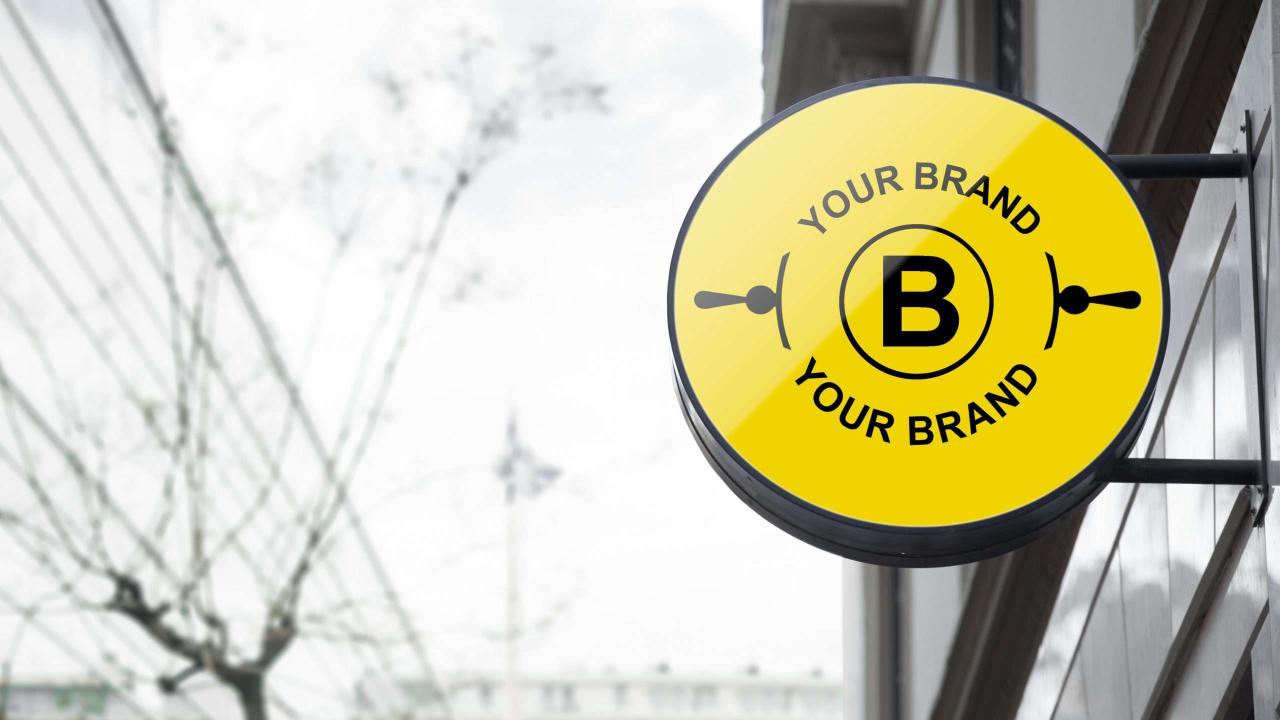
Source: walkproduction.com
In today’s competitive marketplace, a strong brand reputation is more than just a desirable asset; it’s a necessity for survival and growth. Consumers are increasingly discerning, prioritizing companies they trust and believe in. A well-crafted brand identity, built on a foundation of consistency and authenticity, directly translates to increased customer loyalty, higher sales, and a stronger competitive edge.
This is where a branding agency’s expertise becomes invaluable.A strong brand identity significantly enhances a company’s reputation by establishing a clear and consistent message across all platforms. This consistent messaging builds familiarity and trust, making your company easily recognizable and memorable. A well-defined brand voice, visual identity, and overall brand personality create a cohesive experience for customers, reinforcing positive perceptions and fostering loyalty.
This goes beyond simply having a logo; it’s about crafting a narrative that resonates with your target audience and establishes you as a leader in your industry.
Brand Crisis Management
A branding agency possesses the strategic foresight and crisis communication expertise to proactively identify potential risks and develop comprehensive plans to mitigate damage during a brand crisis. They can help you navigate difficult situations, crafting honest and empathetic responses that protect your reputation and maintain customer trust. Their experience in managing public perception allows for swift and effective action, minimizing negative consequences and preserving long-term brand equity.
For example, a well-coordinated response to a product recall, guided by a branding agency, can demonstrate transparency and responsibility, ultimately strengthening customer confidence rather than eroding it. The agency’s role involves not only reacting to crises but also anticipating potential issues and developing preventative measures.
Attracting Investors and Partners
A professional brand image is crucial for attracting investors and securing partnerships. A well-defined brand strategy communicates a company’s values, mission, and vision clearly and concisely. This transparency builds confidence and trust among potential investors and partners, demonstrating stability and potential for growth. A strong brand identity acts as a powerful marketing tool, showcasing your company’s unique selling proposition and highlighting its competitive advantages.
Imagine a pitch deck: a company with a polished brand identity, including a consistent visual language and a clear brand message, will immediately stand out and convey a sense of professionalism and credibility that a less-defined brand cannot match. This professional image can significantly influence investment decisions and partnership opportunities, leading to increased funding and strategic collaborations.
Concluding Remarks
Ultimately, deciding whether to use a branding agency boils down to one question: how much do you value your time, resources, and the long-term success of your brand? While managing branding in-house might seem cheaper initially, the hidden costs of time, inefficiency, and potentially missed opportunities can quickly outweigh the investment in a professional agency. A strong brand is the foundation of a thriving business.
Investing in a branding agency is investing in the future of your business. It’s about building a brand that resonates, connects, and ultimately, drives growth. So, are you ready to unleash your brand’s full potential?
Frequently Asked Questions
What if I already have a marketing team?
Even with an in-house team, a branding agency can offer specialized skills and an objective perspective, focusing on strategic brand development and creative execution, freeing your team to handle other crucial tasks.
How much does a branding agency cost?
Costs vary greatly depending on the agency, scope of work, and your specific needs. It’s best to get quotes from several agencies to compare pricing and services.
How do I choose the right branding agency?
Look for agencies with a proven track record, relevant experience in your industry, and a portfolio that aligns with your brand vision. Check client testimonials and references before making a decision.
How long does a branding project take?
Project timelines vary depending on the complexity and scope. Discuss timelines and milestones upfront with potential agencies to ensure alignment with your business goals.
